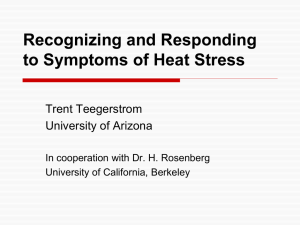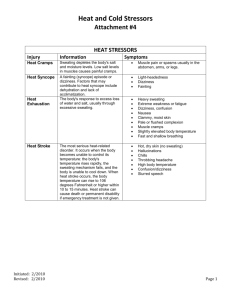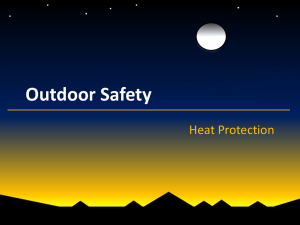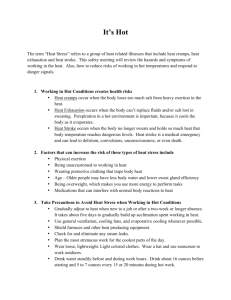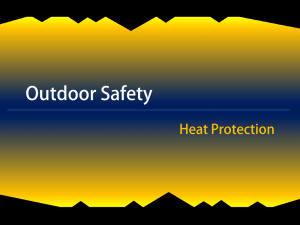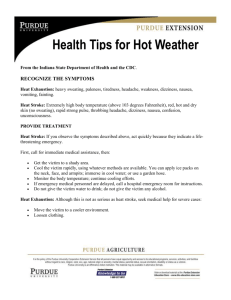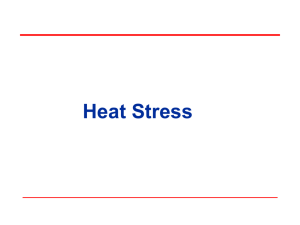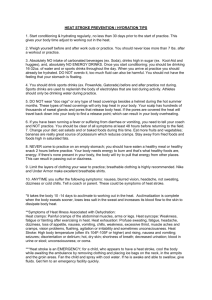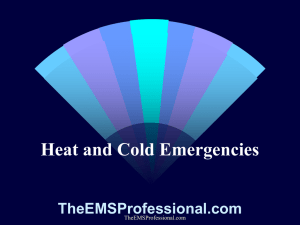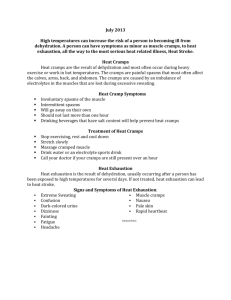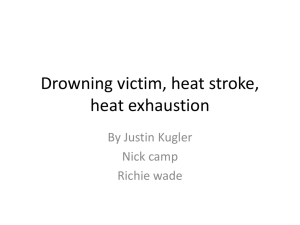Heat Stroke - Akademik Ciamik 2010
advertisement
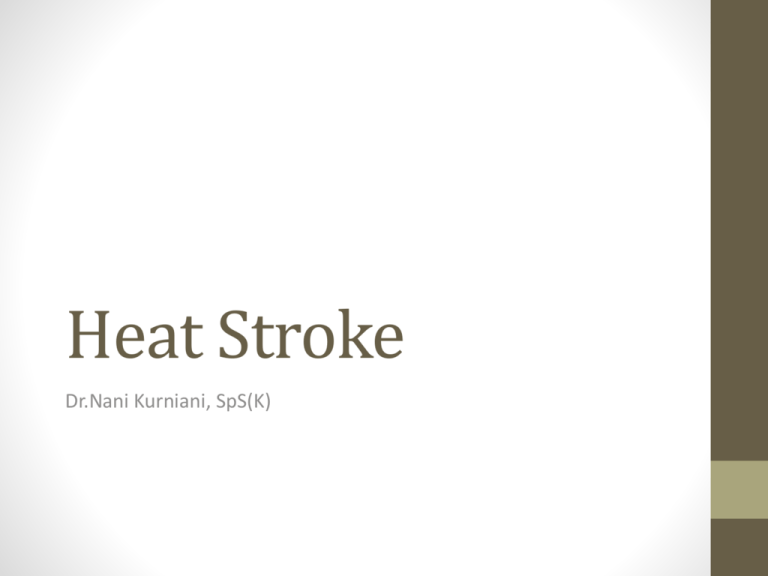
Heat Stroke Dr.Nani Kurniani, SpS(K) DEFINITION • • • • Is a spectrum of disorders due to environmental exposure Body temperature > 40.60C Lack of termoregulation Dry skin, rapid, strong pulse and dizziness • Outdoor worker • Worker in hot environment, especially: • >65 y.o • Overweight • Heart disease/ high blood pressure Type • • • • • Heat stroke Heat Exhaustion Heat Syncope Heat cramps Heat Rash Heat Stroke • Heat stroke is the most serious heat-related disorder. • It occurs when the body becomes unable to control its temperature: the body's temperature rises rapidly, the sweating mechanism fails, and the body is unable to cool down. • When heat stroke occurs, the body temperature can rise to 106 degrees Fahrenheit or higher within 10 to 15 minutes. • Heat stroke can cause death or permanent disability if emergency treatment is not given. Symptom • • • • • • • Hot, dry skin or profuse sweating Hallucinations Chills Throbbing headache High body temperature Confusion/dizziness Slurred speech Heat Exhaustion • Heat exhaustion is the body's response to an excessive loss of the water and salt, usually through excessive sweating. Workers most prone to heat exhaustion are those that are elderly, have high blood pressure, and those working in a hot environment. Symptoms • Heavy sweating • Extreme weakness or fatigue • Dizziness, confusion • Nausea • Clammy, moist skin • Pale or flushed complexion • Muscle cramps • Slightly elevated body temperature • Fast and shallow breathing Heat Syncope • Heat syncope is a fainting (syncope) episode or dizziness that usually occurs with prolonged standing or sudden rising from a sitting or lying position. Factors that may contribute to heat syncope include dehydration and lack of acclimatization. Symptoms • Light-headedness • Dizziness • Fainting Heat Cramps • Heat cramps usually affect workers who sweat a lot during strenuous activity. This sweating depletes the body's salt and moisture levels. Low salt levels in muscles causes painful cramps. Heat cramps may also be a symptom of heat exhaustion. Symptoms • Muscle pain or spasms usually in the abdomen, arms, or legs. Heat Rash • Heat rash looks like a red cluster of pimples or small blisters. • It is more likely to occur on the neck and upper chest, in the groin, under the breasts, and in elbow creases. Pathophysiology • When heat gain overwhelms the body's mechanisms of heat loss, the body temperature rises, and a major heat illness ensues. • Excessive heat denatures proteins, destabilizes phospholipids and lipoproteins, and liquefies membrane lipids, leading to cardiovascular collapse, multiorgan failure, and, ultimately, death. THANK YOU
